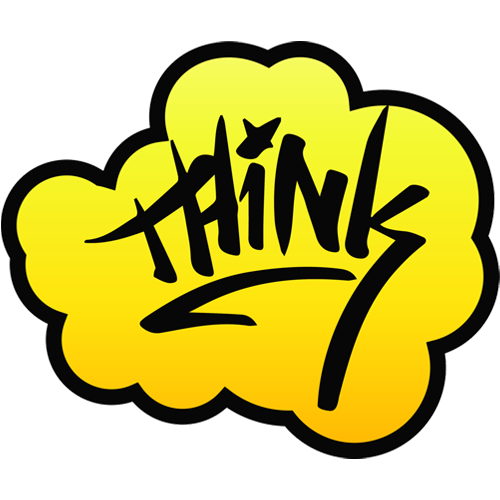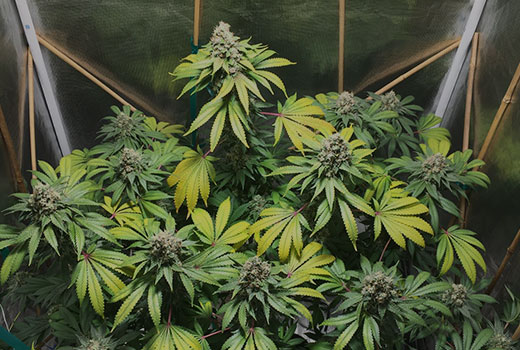What Experts Are Saying About THC, CBD, And CBN for Sleep
Understanding Vape Pens
September 20, 2019How Richard Nixon smuggled 3lbs of Cannabis for Louis Armstrong
January 19, 2020Sleep is crucial to the health and general well being of humans, yet so many adults find it hard to get quality sleep. There are several underlying issues responsible for this condition, but could CBD, CBN and THC for sleep be an answer?
Several measures, like, going to bed early or having a warm bath or drinking warm milk, and sleep medications have been employed to tackle sleep issues.
However, the use of Marijuana as a form of sleep therapy dates far back into 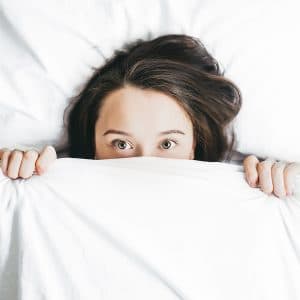 centuries. And this owes to the natural relaxing and sedative properties of the cannabis plant.
centuries. And this owes to the natural relaxing and sedative properties of the cannabis plant.
Anecdotal accounts and contemporary scientific studies show that people, whether or not they have insomnia, found it easy sleeping after ingesting cannabinoids.
Notably, cannabis shortens the time it takes to fall asleep and can have effects, positives and negatives, on REM sleep.
What is REM Sleep?
You spend about one-third of your time sleeping. Quality sleep is an essential key function which helps forms and maintains pathways within your brain.
These pathways allow you to learn and create new memories, all while making it easier to concentrate and respond quickly.
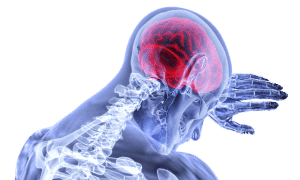
Sleep occurs in stage or “cycles”. Going through these cycle of stages occurs multiple times during a typical night.
These cycles and specifically these stages of sleep allow the brain to go through various patterns of activity.
There are two basic types of sleep: Rapid Eye Movement (REM) sleep and non-REM sleep (NREM).
These two types of sleep can be broken down into more defined stages.
Stage 1 (non-REM sleep)
Stage 1 is when the body relaxes and the brain wave activity begins to slow from an awaken state.
The lightest stage of sleep, which can be easily described as the change over from wakefulness to sleep.
Stage 2 (non-REM sleep)
Stage 2 is the first stage that a normal person considers sleep. As your heartbeat and breathing slow, body temperature decreases with eye movements surceasing. The brain wave activity continues to slow however brief electrical bursts of activity occur.
State 3 & 4 (non-REM sleep)
Stage 3 & 4 are considered the most restorative stages of sleep and occurs during the first half of the night. Levels of your heartbeat and breathing fall to their lowest levels as your brain waves slow even more. Awakenings are rare and is often when individuals most often experience sleeping talking, sleeping walking, night terrors, etc.
Stage 3 & 4 of NREM sleep can account for 10-15% of sleep.
REM Sleep
REM sleep or rapid eye movement, is considered the time when one dreams.
Occurring roughly 90 minutes after falling asleep, your eyes move rapidly from side to side. During this sequence of eye movement, brain activity increases in addition to heart rate and blood pressure.
Awakenings can occur easier while in REM, however being awoke during a REM period can result in the feeling of grogginess or feeling overly sleepy.
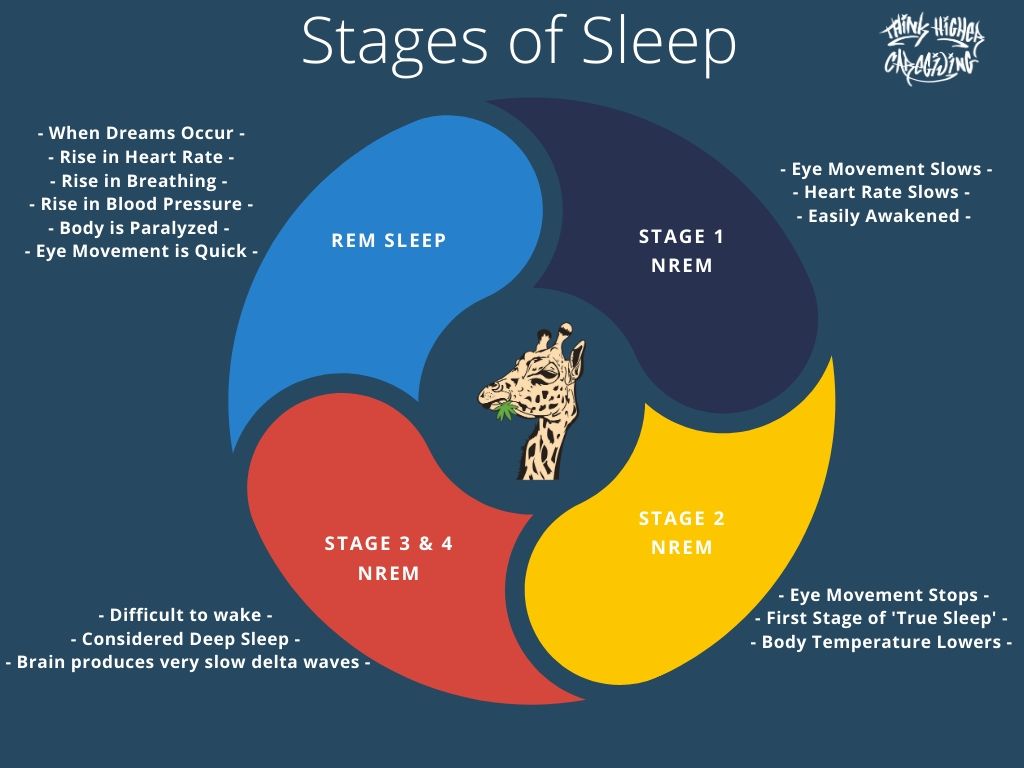
Tetrahydrocannabinol (THC) For Sleep
THC is the principal psychoactive element found in cannabis. 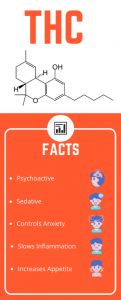 Tetrahydrocannabinol is responsible for the “high” feeling one gets with the ingestion of marijuana, and it is also useful as a pain reliever.
Tetrahydrocannabinol is responsible for the “high” feeling one gets with the ingestion of marijuana, and it is also useful as a pain reliever.
Studies prove that THC is an excellent sedative and makes falling asleep a lot easier.
Forthcoming pieces of evidence indicate that the use of THC tends to improve breathing conditions while sleeping.
To this effect, scientists are working towards using this cannabinoid to treat obstructive sleep apnea – a sleep disorder that involves a significant depreciation in airflow while trying to breathe.
THC Interaction With The Body
As referenced above, each stage of sleep has an estimated amount of time spent on it, but THC can alter that.
This particular cannabinoid has been known to have mixed effects on sleep quality.
Studies reveal that THC can cause a considerable reduction in the amount of time spent in REM sleep; this, in turn, means that the time of slow-wave sleep gets increased.
Effects of Tetrahydrocannabinol
Due to the reduction of time spent in REM sleep, THC minimizes dreaming.
This effect appears to be beneficial to the patients of post-traumatic stress disorder because their condition usually involves the repetitive occurrence of nightmares or bad dreams. Hence, since the patient experiences a lesser amount of disturbing dreams, he can sleep better.
After the ingestion of THC at night to improve sleeping conditions, the user can potential be prone to feeling weak and tired the next day. This may be due to THC minimizing REM sleep.
There are also cases whereby the users of THC reported that they were experiencing euphoria, dry mouth, and increased appetite after taking THC.
Using this substance for an extended period causes withdrawal symptoms such as mood changes and changes in sleep routine.
Cannabidiol (CBD)
Cannabidiol, popularly referred to as CBD, is a widely known extract of the cannabis plant. CBD is known to boost the Endocannabinoid System, which helps the body to self-regulate to achieve balance.
Much research has been done to understand the anti-inflammatory and calming effect it gives to your body.
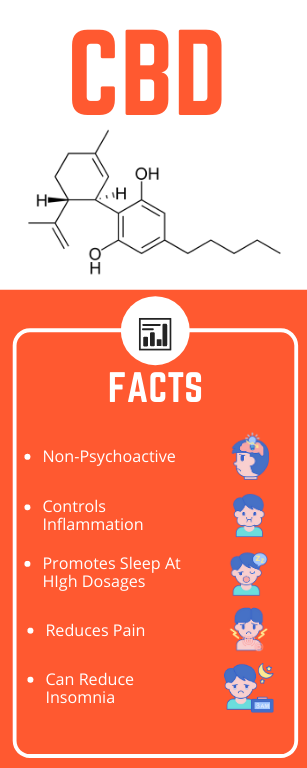 Unlike THC and CBN, this substance is not psychoactive. What this means is that there won’t be a case of you getting high while ingesting it.
Unlike THC and CBN, this substance is not psychoactive. What this means is that there won’t be a case of you getting high while ingesting it.
CBD has been seen to be useful for managing and treating several health challenges like seizures for people living with epilepsy.
Your Body And CBD
Studies suggest that cannabidiol ingestion can go a long way in helping you get a good night’s rest.
Before we go digging into the effects CBD might have on sleep, let’s identify the challenges that keep us from sleeping well.
Someone who has a mental disorder such as post-traumatic stress disorder and anxiety could experience some hindrance in sleeping well.
Also, certain medications you take could contribute largely to make you lose sleep.
Physical conditions are not left out as you will undoubtedly be in pain.
In a scenario whereby your sleep challenges are caused by the factors stated above, making use of CBD will be the best option to curb it.
Effects of Cannabidiol
A 2019 research showed that CBD could reduce insomnia to the barest minimum. It does this by curbing anxiety. Therefore, CBD can play an integral part in eliminating REM sleep anomalies for people with post-traumatic stress disorder.
Some adverse effects can be experienced with the use of CBD. Sleepiness (with low dosages), dry mouth, lightheadedness, and other minor side effects you could suffer as a CBD user.
Cannabinol (CBN) For Sleep
Cannabinol is a mildly psychoactive cannabis extract. And this substance is used as a sedative. CBN occurs naturally in the cannabis plant. It is a by product derived when THC gets heated or oxidized.
How Does Your Body Interact With Cannabinol?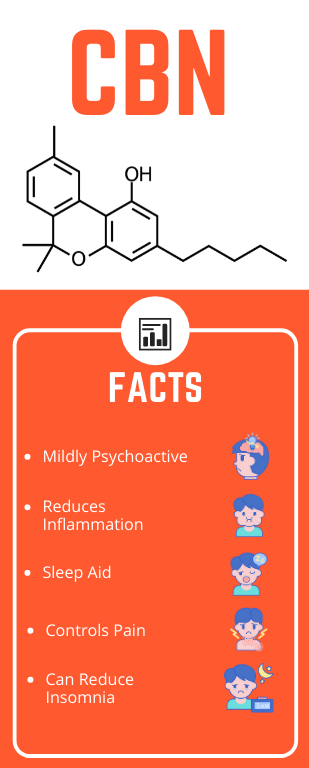
Cannabinol has a vast array of effects on both the human mind and body.
This interaction happens through the endocannabinoid system in the human body. This system plays various vital roles in controlling most brain functions.
When it comes to the regulation of the body’s psychological responses and cognitive functions, the endocannabinoid takes care of it.
It regulates bodily functions like pain, appetite, perception, and mood regulation.
Our hormones also get influenced by CBN in various ways with sleep inclusive.
The Endocannabinoid System has a critical role to play in the sleep process.
We tend to feel sleepy when the cannabinoid receptor type 1(CB1r) is triggered. CBN is known to be an degradation of THC, and as such, it triggers the CB1r easily.
When compared to other cannabinoids, Cannabinol has more effect on sleep.
Laboratory research reveals that only a tiny amount of CBN ingested could cause sedative or sleepy effects. Till today, there has not been much research conducted to discover the impact of CBN.
Effects of Cannabinol
A recent study has indicated that CBN could be put to productive use when it comes to aiding sleep. If combined, cannabinol and THC effects on REM sleep are tremendous.
They work hand in hand and enhances each other’s sleep promotion effects. Your muscles get acted on, too; they become relaxed and gives you an added advantage to having a good sleep.
Just like every other cannabinoid, CBN also has some adverse effects. And this is a predominant occurrence with inexperienced users.
When cannabinol is ingested slightly above the usual dosage, dizziness, loss of appetite, tiredness, and drowsiness could occur. Most times, the effects are mild and can be taken care of by reducing the dosage.
Final Notes
Considerations should be taken when using cannabis to adjust sleep patterns. One should assess the manner and how long one should use cannabis to help. And always speak with a doctor prior.
This article has pointed out some medical cannabinoids and sleep quality you tend to get while using them.
As more research is on-going on the effects of cannabis on sleep, you must stay abreast of the progress in knowledge. Particularly if you are considering to use marijuana to improve your sleep quality.
